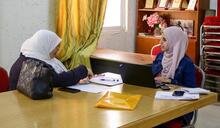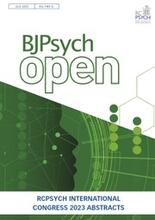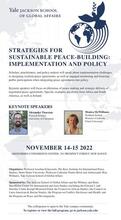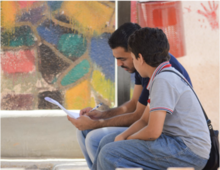The Conflict, Resilience, and Health Program is an interdisciplinary group that works to build resilience and health in communities afflicted by armed conflict or structural violence. Led by Professor Catherine Panter-Brick, this program engages with academics, practitioners, and policy makers to promote innovations in global health research and to evaluate resilience-building interventions.

Home
News
Summary Activities
In 2019 and 2020, goals were to initiate a new project on the intergenerational transmission of trauma with Syrian refugees in Jordan, host several Colloquia on Humanitarian Systems, and initiate new work on faith-based organizations and cross-border migration. This contributed to global discussions informing the future of humanitarian interventions.
2019 Report | 2018 Report | 2017 Report | 2015 Report | 2014 Report




